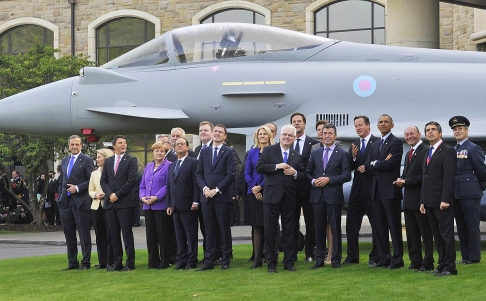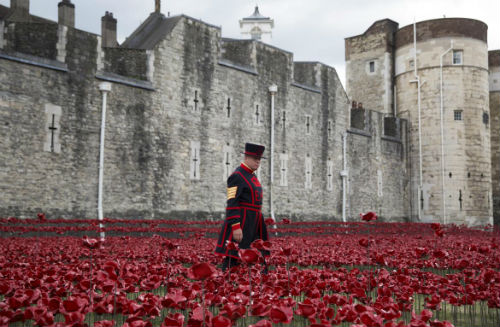1차 세계대전 발발 100주년, 동유럽은 전쟁중

In the last summer, I travelled around in Eastern European countries. What struck me most was not great palaces and castles, or peoples, landscapes and beautiful scenes. My travel was more or less a pilgrimage. I visited a lot of churches (such as the house of dead saints), museums and old Jewish towns ─ sites for reflecting on human suffering and remembering. Many museums had special exhibitions on war. Yes, this year is the centenary of the First World War (1914-1918). Two great wars in human history started and were fought fiercely in Eastern European soil. When WWI ended, four old empires, i.e., German, Russian, Austro-Hungarian, and Ottoman empires, disappeared and the map of Eastern Europe changed dramatically. When WWII ended, Eastern Europe became a hot spot for Cold War confrontation. Many Eastern European countries only recently transitioned to a capitalist market economy.
It is not difficult to imagine the sufferings ordinary people had to endure. There must be many moments they want to forget and far more they won't forget. To take an example, Poland, squeezed between Germany and Russia, saw most buildings in the capital destroyed and there are still ruins of war-devastated buildings in Warsaw. Poland lost about 20 percent of the population during WWII. About 90 percent of the Jewish Polish population, i.e., more than 3 million were killed. The old wars are still there in Polish hearts.

Museums across Eastern Europe commemorate wars in diverse ways. A museum in Vienna showed how artists were mobilized and fought with drawings and pamphlets. One in Prague depicted journalists' involvement in the wars. A national museum in Latvia is named Museum of Occupation to remember the history under Russian occupation. Bookstores in Finland have a large section for war-related books. The Holocaust Memorial is built at the center of Berlin near the Brandenburg gate. I can't help but feel tearful and uplifted as well, entering a newly-built Jewish culture center in Krakow (Poland), where all of the 60,000 to 80,000 Jews were killed or deported by the Nazis in a matter of three years.
Commemorating the war is not to forget the tragedy; it is also meant to educate and appreciate the costs of precious peace and the value of human dignity. So, it is relieving to hear that 1.3 million people visited Auschwitz camp last year (increasing in recent years) and many German students come as a group supported by public institutions.
"History is a dialogue between the past and the future" wrote a prominent historian. It is true that what we foresee and what we want to see in the future makes us look into the past anew. If we think the road before us is peaceful, or if we want peace, we will take the costs of war seriously and commemorate the war in order not to repeat the tragedy and keep peace from being threatened. If we do not think much of war, it will be ignored and forgotten. Observing recent incidents regarding Korean history under current Park and Abe governments, I cannot see a bright future. We have history at war in Korea and Japan, a war of erasing the past. To erase the unpleasant past is to invite an unpleasant, dismal future. As often said, "those who do not learn history are doomed to repeat it." It is this lesson that led Eastern Europeans to commemorate the wars. It is the lesson we have yet to learn here in Asia.
By Lee Young-chul, Professor, Dept. of Public Administration

